110. The Bivouac of the Dead, and other notes, on Memorial Day, 2007
First, a poem appropriate for the day. Well, first, a little about the poet. The poem was written in 1847 by Thomas O' Hara, a native of Danville who was a writer who served in the United States Army and later the Confederate States Army. He wrote it in honor of the fallen soldiers at the Battle of Buena Vista in the War with Mexico. He was a captain and assistant quartermaster with the Kentucky Volunteers during that war and later lead a contingent of Kentucky soldiers during the 1850 expedition to free Cuba, where he was severely wounded. (The earlier entries on the missing statue of Jose Marti in Shively deal with the Cuban battle). While he recuperated, he became involved in journalism and edited a newspaper here along the Left Bank of the Ohio River near Milepost 606. He practiced law for some time in Washington, DC. Still later, he re-joined the Army in 1855, serving for a year with the Second US Cavalry.
In 1856, O'Hara moved to Mobile, Alabama, where he was editor of the Mobile Register until the outbreak of the Civil War. He raised the "Mobile Light Dragoons" in the city and was elected company captain, before joining the CSA 12th Alabama Volunteer Infantry, rising to the rank of Lieutenant Colonel. He later served on the staff of General Albert Sidney Johnston and General John Breckinridge (both Kentuckians, the latter a former Vice President of the United States). After the war, Lt. Col. O'Hara became a cotton merchant until he was wiped out by a fire. He retired to a friend's plantation in Alabama where he died in 1873 from malaria. The following year, his remains were re-interred in the military part of the Frankfort Cemetery returning him to his native Kentucky.
Iron plaques (or tablets) of the poem have been placed in national cemeteries all across the Republic, dating back to at least 1879 when the words first appeared at the McClellan Gate, the original entrance to Arlington National Cemetery. The verses can be found in Louisville at the Zachary Taylor and Cave Hill National Cemeteries, the latter located within the walls of Cave Hill at E. Broadway and Baxter Avenue.
The muffled drum's sad roll has beat
The soldier's last Tattoo;
No more on life's parade shall meet
That brave and fallen few.
On Fame's eternal camping ground
Their silent tents are spread,
And glory guards, with solemn round
The bivouac of the dead.
No rumour of the foe's advance
Now swells upon the wind;
No troubled thought at midnight haunts
Of loved ones left behind.
No vision of the morrow's strife
The warrior's dream alarms;
No braying horn, nor screaming fife,
At dawn shall call to arms.
Their shivered swords are red with rust,
Their plumed heads are bowed;
Their haughty banner, trailed in dust,
Is now their martial shroud.
And plenteous funeral tears have washed
The red stains from each brow;
And the proud forms, by battle gashed,
Are free from anguish now.
The neighing troop, the flashing blade,
The bugle's stirring blast,
The charge, the dreadful cannonade,
The din and shouts are past;
Nor war's wild note, nor glory's peal,
Shall thrill with fierce delight;
Those breasts that never more may feel
The rapture of the fight.
Like the fierce Northern hurricane
That sweeps the great plateau,
Flushed with triumph, yet to gain,
Come down the serried foe;
Who heard the thunder of the fray
Break o'er the field beneath,
Knew the watchword of the day
Was "Victory or death!"
Long had the doubtful conflict raged
O'er all that stricken plain,
For never fiercer fight had waged
The vengeful blood of Spain;
And still the storm of battle blew,
Still swelled the glory tide;
Not long, our stout old Chieftain knew,
Such odds his strength could bide.
Twas in that hour his stern command
Called to a martyr's grave
The flower of his beloved land,
The nation's flag to save.
By rivers of their father's gore
His first-born laurels grew,
And well he deemed the sons would pour
Their lives for glory too.
For many a mother's breath has swept
O'er Angostura's plain,
And long the pitying sky has wept
Above its moldered slain.
The raven's scream, or eagle's flight,
Or shepherd's pensive lay,
Alone awakes each sullen height
That frowned o'er that dread fray.
Sons of the Dark and Bloody Ground
Ye must not slumber there,
Where stranger steps and tongues resound
Along the heedless air.
Your own proud land's heroic soil
Shall be your fitter grave;
She claims from war his richest spoil,
The ashes of her brave.
Thus 'neath their parent turf they rest,
Far from the gory field,
Borne to a Spartan mother's breast
On many a bloody shield;
The sunshine of their native sky
Smiles sadly on them here,
And kindred eyes and hearts watch by
The heroes sepulcher.
Rest on, embalmed and sainted dead,
Dear as the blood ye gave,
No impious footstep here shall tread
The herbage of your grave.
Nor shall your glory be forgot
While fame her record keeps,
For honor points the hallowed spot
Where valor proudly sleeps.
Yon marble minstrel's voiceless stone
In deathless song shall tell,
When many a vanquished age hath flown,
The story how ye fell.
Nor wreck, nor change, nor winter's blight,
Nor time's remorseless doom,
Shall dim one ray of glory's light
That gilds your deathless tomb.
***** *****
A friend and I did some travelling today, venturing out into the state on an unplanned and unplatted trip. It was a beautiful day to do so, although it did finally get a little warm. After leaving Jefferson County, we coursed our way through the following burgs, hamlets, villages, and cities: Mount Washington, Waterford, Taylorsville, Briar Ridge, Johnsonville, Chaplin, Mooresville (after stopping at one of Kentucky's remaining (though closed) covered bridges), Springfield, Lebanon, Calvary, Campbellsville, Black Gnat (up off to the south side along the old road), Greenville, Exie, Sulphur Well, Knob Lick, Hiseville (where we had a lunch of catfish, fried shrimp, and slaw), Griderville (also known as Goodnight), Cave City, Park City, Mammoth Cave (city), Horse Cave, Rowletts, Woodsonville, Munfordville (where Thelma Stovall was from), Bonnieville, Upton (where one side of the street is in Hardin County while the other is in Larue), and finally entering onto I-65 North at Sonora, taking 65 back into the city, a trip of maybe 225 miles. We stopped along the way at antique shops, flea markets, yard sales, a cave visit, and the Lebanon National Cemetery, located along KY 208 just south of the city, where we wandered among the 4,893 thus far interred within the 14.8 acre grounds, the first burial of which was in 1862.
Just south of our stop at the cemetery, my truck's odometer passed a milestone. Just before passing a mailbox identifying 6001 Calvary Road (KY 208) in Calvary, Kentucky, a few miles before the Marion/Taylor county line, the odometer tripped past 100,000 miles. I can recall only one other vehicle I happened to be driving when such an milestone was passed, that in my 1967 Chevy II Nova, sometime in 1978, as I was driving along Cooper Chapel Road near McNeely Lake in southern Jefferson County. I patted the truck on the dashboard for a job well done - thus far. As things are, I need to keep the truck in shape as we are now headed for the second hundred thousandth mile.

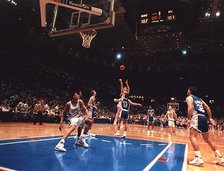
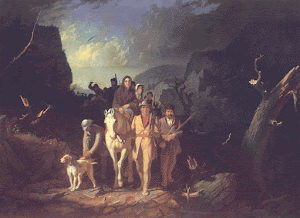



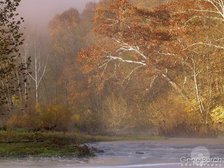








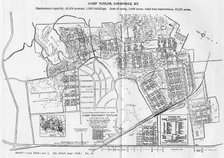
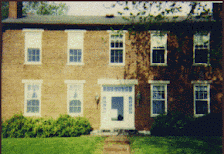

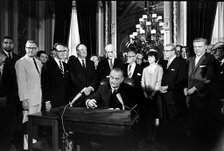

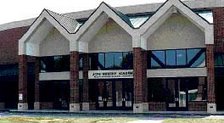
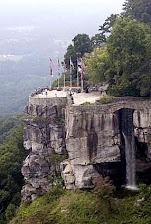

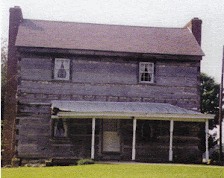
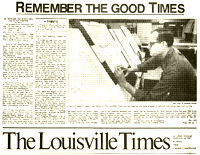
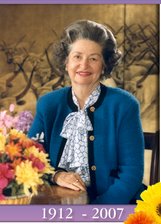
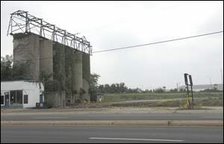
1 comment:
Jeff-
It's interesting that we did the same thing. The poem is a fit tribute to those who have given their lives in defense of this country. I enjoyed reading a bit more of the poet's background.
I also enjoyed reading about the street sign screw ups. There's nothing worse than attempting to correct a problem that falls on deaf ears.
I've been to Louisville and Lexington several times. Lexington is an amazing city and I've never had trouble finding things.
Thanks for visiting my blog.
cjh
Post a Comment